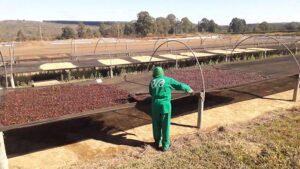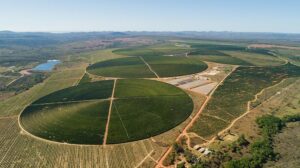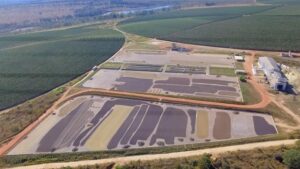Description
History
The history of Fazenda Ecoagrícola begins in 1970, much before speaking of coffee in the Serra do Cabral (in the Chapada de Minas region, in the north of Minas Gerais).
Mr. Henrique Flanzer had bought and area in the region to begin a forestry business, but with the arrival of brothers Marcelo and Roberto, Mr. Henrique Flanzer’s sons, to administer the farm, the mentality of diversifying business increased.
After some contact with coffee cultivation, the brothers realized that Ecoagrícola had a very peculiar terroir that was ideal for producing coffee: elevation, climate, an abundance of water, as well as being located in an exuberant, well-preserved ecosystem. These conditions gave them the support they needed to begin growing coffee on the farm.
In 2011, the paths of brothers Marcelo and Roberto crossed for the first time with Mr. Pedro Henrique and his father, Pedro Humberto Veloso, and since then the two families have exchanged information about coffee and business. Seeing the possibility of expanding, affinity in dialogue about the coffee industry led the Flanzer brothers and the Veloso family to prospect a partnership to plant more coffee in the region. Although they did not consolidate immediately, they maintained health contact.
Nine years later, the Flanzer family decided to sell Fazenda Ecoagrícola, which again brought dialogue with Mr. Pedro Humberto Veloso’s family. The sale of the farm to siblings Mariana, Pedro Henrique, Manoel Humberto and Maria Eduarda was agreed.
The new phase of Ecoagrícola Café
Mariana Veloso, experienced in the coffee market, has worked in the commercial area of her father’s farms since 2003 and Pedro Henrique works in their operational management. Together they brought more than 20 years of experience in coffee to the Serra do Cabral. Manoel Humberto is dedicated to supporting the administrative area in economic sustainability and Maria Eduarda, the youngest sibling, joined the sustainability department together with the traceability and certification team.
Under new management, the Ecoagrícola project underwent a strategic brand and management reformulation. From this arose a new purpose, a new start and a consistent, protagonistic and responsive personality. The family believes that nature and productivity can cooperate, rather than compete. The siblings seek efficiency in production and quality, establishing more functional precision agriculture associated with medium- and long-term planning. Naturally sustainable cultivation, aimed at preservation and integration between man and nature in producing coffees with clean, efficient technology, creating sustainable quality at scale.
Already underway, the siblings plan total consolidation of the planted area by 2030.
Environmental, economic and social sustainability
Environmental:
Drip Irrigation: Already in operation, this is estimated to reduce consumption of water by 30% and of energy by 25% because the drip system enables the application of water, as well as fertilizers, to the bulb of the plant, introducing only the amount of water necessary directly to the roots of the coffee tree.
Biofactory: This project, currently under construction, seeks to produce biological pesticides and fertilizers, aligned with the practices of regenerative agriculture. Such an innovation in coffee production began to grow in Brazil in the past 3 years, guiding the reduction of the use of chemical products and greater integration with the ecosystem. This practice, also called “on farm,” develops bacteria and fungi using yeasts acquired on the market. These microorganisms act as multipliers of the natural enemies of coffee pests and diseases, which promotes a responsive integration with the local ecosystem.
Preservation: The family invests in a caving study on the property to delimit the area of permanent protection. So far 41 caves and 27 karst features categorized as shelters (12) and recesses (15) have been identified. The research seeks to present the descriptions and topographical speleo plants of these two cavities, as well as to present the definition of the area of influence and evaluation of the impacts on these cavities.
Reforesting: Planning projected for the second half of 2023, planting of 60,000 trees within the limits of the property, in addition to ongoing participation in the development of the Serra do Cabral Park, located in the city of Bonópolis.
Social
The relationship with the local communities, started during Flanzer management, continues to be fostered by new management through the acquisition of regional products for internal use on the farm.
Economic development also stands out. The new phase of Ecoagrícola provides training and the creation of new jobs to the region.
Women in Coffee: Seeks to value the growth, training and evolution of women in the labor market. The “Café por Elas” was started, aimed exclusively toward women. There are more than 30 openings in tractor driving, irrigation, coffee cultivation work, coordination and pesticide laundry, exclusively for women, without affecting jobs areas already made up of women. The intention is exactly to increase training, employment and income for the inhabitants of local communities, as winning labor rights, unfortunately, it not always accompanied by valuation and recognition of the importance of feminine labor. Ecoagrícola has always supported this change.
Support for Culture and Tourism: The institutional department at Ecoagrícola puts aside, each year, resources to support parties, sports championships and local commemorative dates, as well as putting these resources at the disposal of partners to plan and carry these out.
Research
The family invests in research on varieties and genetics that seek to increase the productivity and quality of the coffee. It is important to stress that Mr. Pedro Humberto Veloso’s family has developed cultivar improvement fields in the Cerrado Mineiro region, where the family’s first properties are located, since 2010. In partnership with Epamig and several specialized coffee consultants, Ecoagrícola already has over 50 varieties in the research phase, as well as having planted, in 2021 and 2022, genetic materials that had been tested and approved in studied carried out over the past 10 years, among them the varieties Guara, Asa Branca, Paraíso, Catuaí SH3, Acauã Novo and Bourbon stand out.
Processing
The coffees at Ecoagrícola are 100% tracked from harvest to delivery and are defined by analysis of the drink profile, variety, plot, processing method (pulped natural, natural or fermented), among other factors.
All the coffee that leaves the fields goes through the wet mill where the fruits are first separated by density – ripe fruits sink and those at a more advanced stage of maturation float.
The Fruits: The ripe fruits pass through several processes: natural drying, fermentation, or they may go to the pulper, which separates the fruits by size using screens, later peeling them, resulting in pulped natural coffee.
Drying and Fermentation: This pulped coffee may go to the patios for drying in the natural way or may proceed to a kind of rotating dryer known as Ecodrive developed by Penagos, a Colombian company. It is important to point out that this equipment enables drying microlots or macrolots using separate compartments.
There is also the option of doing all of the drying of the coffees that arrive there completely humid or partially dry, in both cases maintaining the quality of the lot.
In addition, pulped beans can be placed in tanks to be fermented, resulting in microlots with high drink potential. The fruits that float may also be dried naturally on patios, or they may go through induced fermentation. These tanks, with a capacity of 5000 liters each, allow movement to occur every hour, thus ensuring more homogenous fermentation.
Ripe fruits, as well as pulped beans and the floaters can be dried on African beds – which depends on the drink potential that the microlot presented in the quality mapping phase.
Also, lots that are at the peak of ripeness and deserve special care can be in shaded African beds. Such a procedure results in very slow drying, around 20 days, resulting in special nanolots.
Profiles such as Natural Tropical – This uses a rigid protocol of dry aerobic fermentation, it has undergone improvements with the objective of delivering constant supply and quality. These specific microlots are dried slowly on shaded African beds, resulting in a drink profile with alcoholic notes reminiscent of wine, considered an Ecoagrícola exclusive profile.
A few protocols that are Ecoagrícola’s specialty stand out, such as Slow Sun Dried, which consists of slow, shaded drying of pulped natural lots on patios, delivering a highly sweet drink. In addition, Double Aerobic Fermented methods, which add a second fermentation step in the protocol used in Natural Tropical, as well as the Anaerobic Fermented method, which involves controlled fermentation in valve drums and has been very well appreciated by Ecoagrícolas’s clients."
Farm Information
-
Farm NameEcoagrícola Café
-
FarmerEcoagrícola Café
-
Altitude1100
Score
-
Score88.15
-
Rank7
Lot Information
-
Year2023
-
Processing SystemNatural
-
VarietyCatucaí 2SL
-
OverallBerry, Complex, Grape Jelly, Overall Sweet, Well Structured.
-
Aroma / FlavorMango, Passion Fruit, Pineapple, Tropical Fruit, Banana, Chocolate, Dark Chocolate, Grape, Lemongrass, Plum, Apricot, Bittersweet Chocolate, Black Currant, Blackberry, Blueberry, Brown Spice, Brown Sugar, Cacao Nibs, Cherry, Chocolate Liquor, Cinnamon, Cranberry, Dried Cherry, Fruity, Green Apple, IPA, Jasmine, Jackfruit, Kiwi, Lemon, Licorice, Lychee, Mandarin Orange, Melon, Oak, Orange, Peach, Red Dried Fruit, Red Grape, Rum, Strawberry, Vanilla, Whiskey, Winey, Yellow Peach.
-
AcidityCitric Acid, Bright, Malic Acid, Acetic Acid, Complex, Crisp, Jackfruit, Juicy, Kiwi, Mango, Phosphoric and Malic, Red Apple, Tart, Tartaric, Tropical Fruit.



